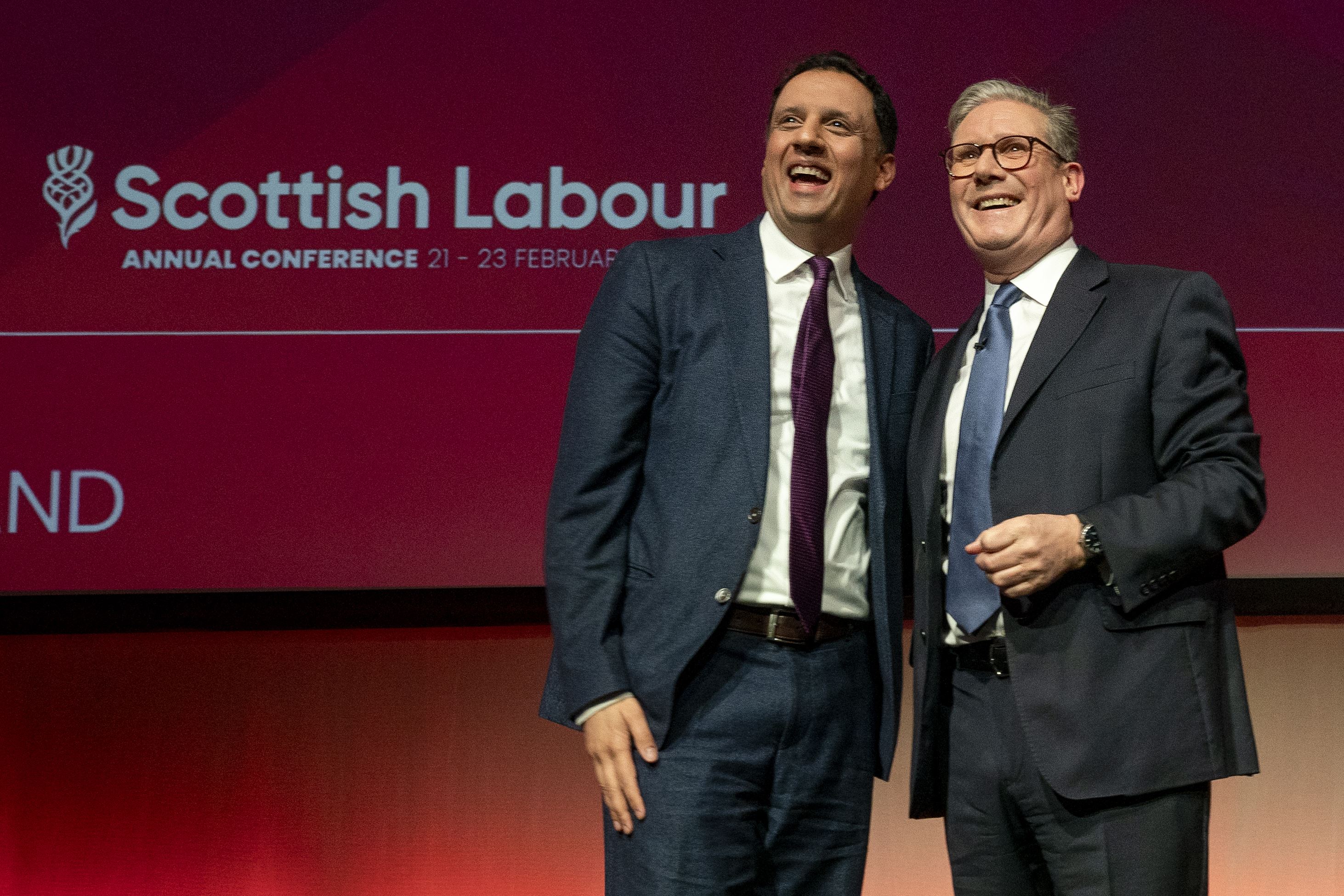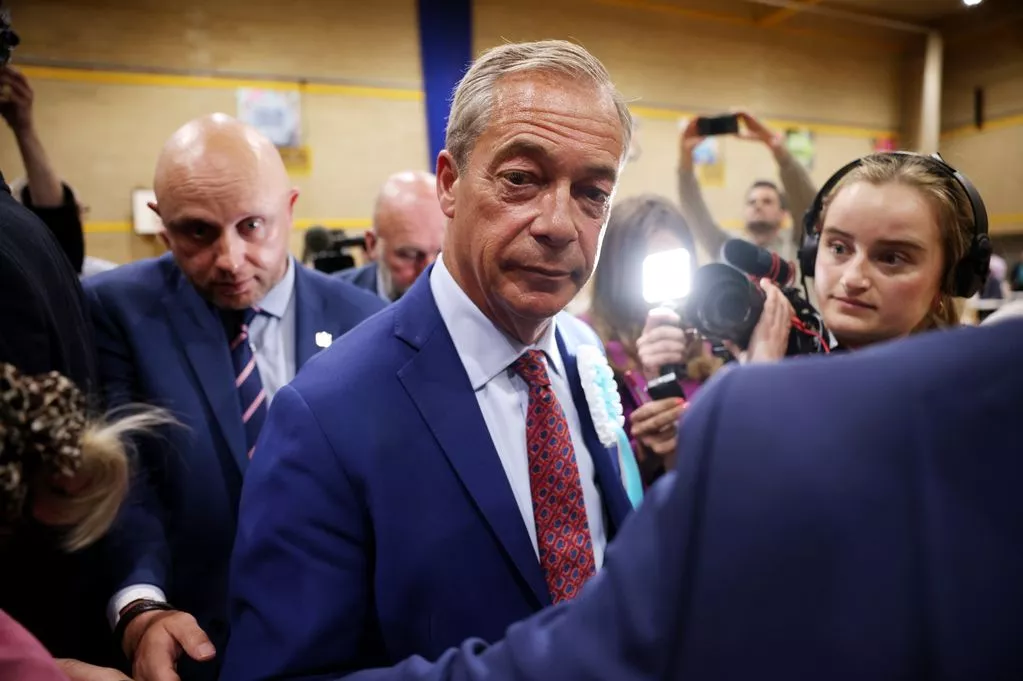Nigel Farage Prefers SNP Win In Next Holyrood Election: Reform Party's Stance

Table of Contents
H2: Farage's Rationale: A Strategic Calculation?
Farage's statement, while astonishing, may be a strategic maneuver rather than a genuine endorsement of the SNP. Several factors could be at play:
-
Weakening the Unionist Vote: A fractured unionist vote, with multiple parties competing for the same voters, could significantly weaken their overall performance, potentially benefiting the SNP. Farage might see this as an indirect way to further his own political agenda within the UK. This strategy hinges on the assumption that a divided opposition is weaker than a unified one.
-
Targeting Labour: By seemingly supporting the SNP (indirectly), Farage might be attempting to undermine the Labour Party, a significant rival in England. A powerful SNP presence in Scotland could divert Labour's resources and attention away from their efforts across the rest of the UK. This would allow the Reform Party to focus on consolidating its position in England.
-
Anti-Establishment Sentiment: Both the Reform Party and the SNP capitalize on anti-establishment sentiment. A shared opposition to the perceived political elite might foster unexpected alliances, however temporary they may be. This shared ideology, however unlikely, could explain Farage’s seemingly counterintuitive stance.
-
Focus on English Politics: Farage's primary focus remains English politics. By avoiding direct campaigning against the SNP in Scotland, he can dedicate more resources to growing his party's influence in England. This strategic reallocation of resources is key to understanding his statement.
H2: The Implications of an SNP Victory
An SNP victory, even with Farage's unexpected support, would have profound ramifications:
-
Increased Pressure for Independence: A larger SNP majority would undoubtedly intensify the pressure on the UK government to grant a second independence referendum. This could lead to constitutional crises and significant political upheaval.
-
Brexit Negotiations: An SNP-led Scottish government would likely prioritize maintaining close ties with the European Union, potentially creating conflict with a UK government pursuing a different Brexit strategy. This could lead to complex legal and political battles.
-
Impact on the UK Union: The long-term survival of the UK union would be further challenged by an SNP victory, potentially fueling calls for Scottish independence. The very future of the United Kingdom could be at stake.
-
Political Instability: A strong SNP mandate alongside a potentially divided UK government could result in significant political instability across the UK. This uncertainty could have negative economic and social consequences.
H3: Reform UK's Position and its Potential Impact
While Farage’s position is surprising, it's crucial to consider Reform UK's broader political strategy. Their focus on specific issues, such as Brexit and economic reform, might lead them to view a strong SNP government in Scotland as less of a threat than a weakened Unionist vote. This calculated approach highlights the intricate nature of UK politics. The Reform party might aim to position itself as a disruptor, even if that disruption takes unexpected forms.
H2: Analyzing the Public Reaction and Media Coverage
Public and media reactions to Farage's statement have been mixed, ranging from confusion and outrage to cynical acceptance. The unusual alignment has sparked extensive debate and analysis of the strategic calculations involved. This reaction underlines the unexpected nature of this political shift and the ongoing volatility of the UK political scene. The story's dominance in news headlines underscores its importance.
Conclusion:
Nigel Farage's seemingly contradictory preference for an SNP win in the next Holyrood election reveals a complex and calculated political strategy. Whether driven by a desire to weaken the Unionist vote, target Labour, or focus on English politics, the implications of this unexpected stance are considerable. An SNP victory, even with this unusual backing, would likely increase pressure for Scottish independence and significantly alter the UK political landscape. Understanding this nuanced situation requires analyzing not only Farage's motivations but also the broader strategic implications for all involved parties. Stay informed about the latest developments regarding Nigel Farage's surprising stance and its potential impact on the next Holyrood election. The political future of Scotland, and indeed the UK, remains uncertain. Learn more about the evolving dynamics surrounding "Nigel Farage Prefers SNP Win in Next Holyrood Election".

Featured Posts
-
 Nigel Farages Reform Uk Sides With Snp For Next Holyrood Election
May 04, 2025
Nigel Farages Reform Uk Sides With Snp For Next Holyrood Election
May 04, 2025 -
 Nhl Playoffs Analyzing The Tight Western Conference Wild Card Race
May 04, 2025
Nhl Playoffs Analyzing The Tight Western Conference Wild Card Race
May 04, 2025 -
 Twitch Becomes Lizzos New Music Platform What To Expect
May 04, 2025
Twitch Becomes Lizzos New Music Platform What To Expect
May 04, 2025 -
 Oil Prices Soar Airlines Face Fuel Crisis Navigating The Turbulence
May 04, 2025
Oil Prices Soar Airlines Face Fuel Crisis Navigating The Turbulence
May 04, 2025 -
 Esc Erfolg Fuer Deutschland Wiener Duo Im Fokus
May 04, 2025
Esc Erfolg Fuer Deutschland Wiener Duo Im Fokus
May 04, 2025
